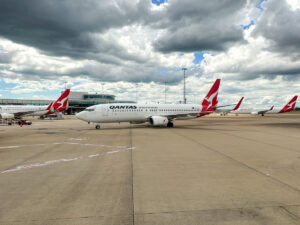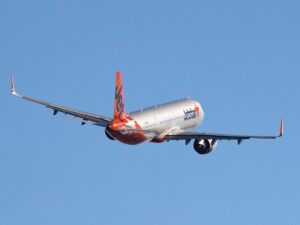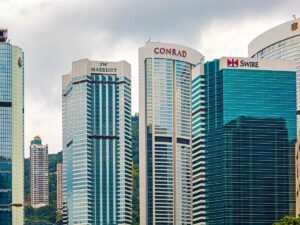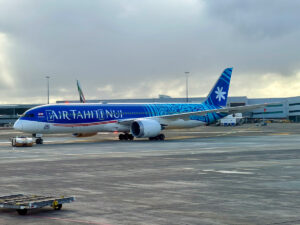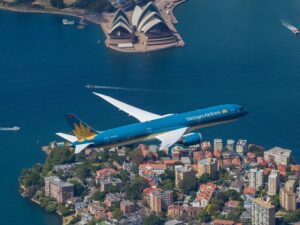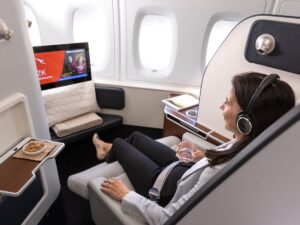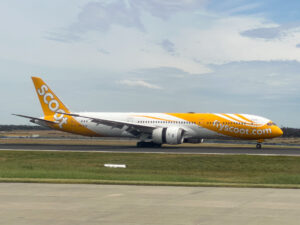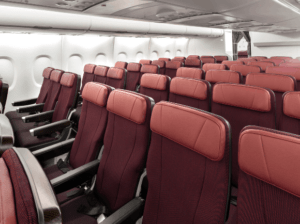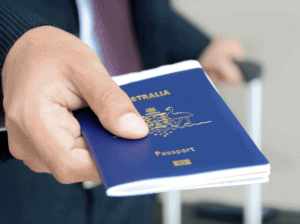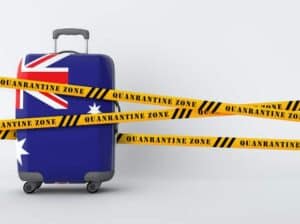 On 25 March 2020, the Australian government banned citizens and temporary residents from leaving the country without a special exemption. This extraordinary temporary measure was introduced amid growing uncertainty surrounding the coronavirus pandemic. At the time, the Australian outbound travel ban was widely viewed as reasonable.
On 25 March 2020, the Australian government banned citizens and temporary residents from leaving the country without a special exemption. This extraordinary temporary measure was introduced amid growing uncertainty surrounding the coronavirus pandemic. At the time, the Australian outbound travel ban was widely viewed as reasonable.
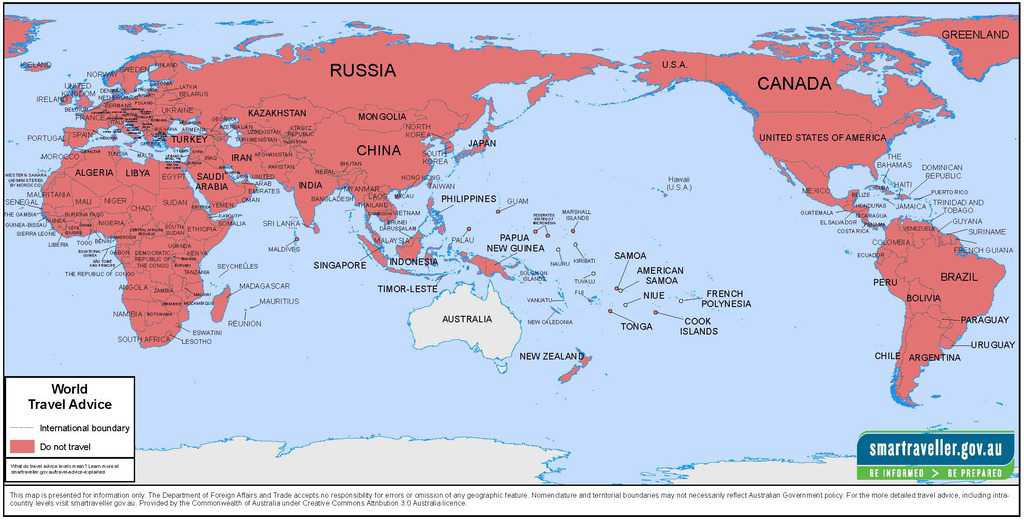
It’s now the end of August. Not only is the travel ban still in place, but there’s no end game. Australians are being held as prisoners in their own country indefinitely. The government is now saying that international travel may not be allowed to resume until there is a vaccine.
Among Western democracies, it is highly unusual for a government to ban its own citizens and permanent residents from leaving the country – even during the COVID-19 pandemic. Some legal experts have argued that the ongoing travel ban may be a violation of Australia’s human rights obligations under the International Covenant on Civil and Political Rights. Even Liberal MP Dave Sharma has described the travel ban as a “pretty extraordinary restriction on people’s liberty”.
Some countries, such as Lithuania and the United Arab Emirates, did impose outbound travel bans on their own citizens at the beginning of the pandemic. But most of these extreme restrictions have since been lifted. Even New Zealand, which adopted strict lockdowns as part of an elimination strategy against COVID-19, is allowing its own citizens to leave the country if they wish. (New Zealanders still need to do 14 days of managed isolation when returning.)
Who is eligible for an overseas travel exemption?
Australians may apply to Border Force for an exemption to travel overseas if they fall into one of the following categories:
- Travel is as part of the response to the COVID-19 outbreak, including the provision of aid
- Travel is essential for the conduct of critical industries and business (including export and import industries)
- Receiving urgent medical treatment that is not available in Australia
- Urgent and unavoidable personal business
- Travelling on compassionate or humanitarian grounds
- Travel is in the national interest.
This also applies to Australian permanent residents and dual citizens who are also citizens of another country. However, Australian citizens that are normally overseas residents (defined as having spent more time outside of Australia than in Australia during the past 12-24 months) do not need to apply for an exemption to leave.
Exemptions are not that easy to get. Around 75% of applications have been rejected, and the process is not particularly transparent. There have been countless stories of people unable to even visit dying relatives overseas.
Even an AFF member who is a dual Australian-German citizen was denied permission to permanently move back to Germany. People leaving the country don’t place Australians at risk, so this seems rather draconian. Perhaps the government doesn’t trust that people won’t try to return during the pandemic – although many overseas Australians are finding it near-impossible to do so at the moment anyway due to the restrictive arrival caps.
In the meantime, there is at least some good news. The Sydney Morning Herald reported yesterday that there seems to have been a shift in Border Force policy recently. Following the launch of a new online application portal, applications for travel exemptions now seem to be getting approved more quickly and at a higher rate.
There is an Australian Frequent Flyer thread discussing peoples’ experiences with getting permission to leave the country during the COVID-19 pandemic: Experience with Australian border controls leaving the country
Most people wishing to leave aren’t going on overseas holidays
Of course, there are some very good reasons that most Australians would not choose to travel overseas at the moment. Aside from the obvious health risk of catching COVID-19, it’s almost impossible to get travel insurance and there is a great risk of getting stuck somewhere due to cancelled flights or quarantine requirements of foreign governments.
Australians are mature and intelligent enough to understand this, which is why they’ve been broadly supportive of the COVID-19 measures taken so far. So, surely Australians are also mature enough to make their own decisions about whether or not to travel overseas. If, despite all the risks, you really need or want to travel overseas right now, why should the government stop you?
We’re certainly not advocating that everybody should be taking overseas holidays right now. Of course that’s not a sensible thing to do. But the vast majority of those trying to leave the country right now are not taking discretionary holidays. Most have very legitimate reasons for needing to be somewhere else, and are frustrated by the bureaucracy involved to do things like visiting dying relatives, being reunited with partners or accepting a long-term overseas job. Peoples’ livelihoods are being severely disrupted.
Even if some Australians did choose to take overseas holidays despite knowing the risks, what’s the risk to Australia if these travellers are prepared to pay for their own hotel quarantine upon return? Under this system, there’s no cost to taxpayers and the health risk is mitigated.
The burden on hotel quarantine
The government may argue that it doesn’t want more Australians heading overseas, potentially placing further pressure on consular services and the hotel quarantine system, should they return to the country. There is some merit to these arguments. Recent outbreaks in Australia and New Zealand have exposed flaws in the hotel quarantine system, and Australians that are already overseas are certainly finding it difficult to get home at the moment – although this is mostly due to the government’s own arrival caps.
But the vast majority of returning travellers have successfully been quarantined in hotels without incident. There have been occasional hotel outbreaks to date, but having now learned from past mistakes, it’s unlikely the same errors will be repeated in future.
NSW Police Commissioner Mick Fuller said last week that Sydney’s hotel quarantine operation has been a “success”.
“50,000 people through, 80,000 shifts in security, and we’ve had two minor issues. We’re certainly proud of the hotel operation as it stands, and we believe that success of that operation is one of the primary reasons that NSW is leading COVID-19 not just in Australia, but across the world,” Mr Fuller said.
When will this end?
Australia’s current outbound travel ban is due to expire on 17 September 2020. But this will almost certainly be extended again without scrutiny. There is no fixed end date and unrestricted international travel is unlikely to resume until there is a COVID-19 vaccine.
There is some hope on the horizon. A recent federal government budget update cited an assumption that Australia would allow some international travel again from January 2021, albeit with two weeks of mandatory quarantine upon returning. The document states:
From 1 January to 30 June 2021, it is assumed that the travel ban is lifted, but that a two-week quarantine period is required of arrivals to Australia. This leads to the resumption of arrivals by temporary and permanent migrants, but at lower levels overall than normal.
This is not yet official policy, but it’s a promising sign. The Australian government can’t just keep its own citizens locked within its borders indefinitely. Sooner or later, something will have to give.
When do you think Australia should lift its outbound travel ban, and under what circumstances should this happen?
Join the ongoing discussion on the Australian Frequent Flyer forum: Predictions of when international flights may resume/bans lifted



